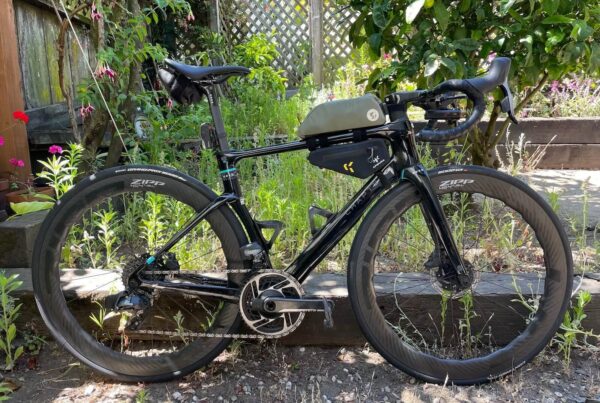Can you legally wear headphones while riding? The answer might surprise you.
By Bob Mionske
One of the more common negative cycling stereotypes is that of a tuned-out rider blissfully unaware of his surroundings as he pedals along, lost in the music blaring from his headphones. The reasons cyclists ride with earbuds are as varied as the riders themselves. Music may motivate some to train harder, while others like the way it helps filter out wind noise. Also, moving to music is an ancient tradition dating back to the dawn of human culture. For some, listening to music while riding is just a perfect way to combine two beloved activities.
Although detractors say it’s unsafe, that’s not necessarily true. Most headsets for portable devices are designed in a way that does not inhibit outside sounds from reaching the ear. And in most states, it is not illegal to wear earbuds or a headset while riding. Of course, if you’re listening to music at ear-damaging volumes, outside sounds may be drowned out, but no law requires vehicle operators to be able to hear. If the law did require that, motorists would not be allowed to crank their stereos up and deaf people would be prohibited from operating vehicles. The fact is, when riding we rely less on our ability to hear other vehicles–an imprecise source of information regardless of how fine-tuned our ears are–than we do on sight, along with our balance and our body’s sense of itself in space and time. Thus, even if headphones did impair hearing–and generally they don’t if you’re listening at a reasonable volume out of a single earbud–it’s still possible to safely operate a bicycle.
However, if wearing headphones while riding is against the law in your state (see box), you face potential penalties for doing so. Although the most common one is a traffic ticket, there are potentially more serious ramifications: If you are involved in a collision and you were wearing headphones in violation of the law, you may be found to be liable for negligence even if the other person was also negligent.
The Law: Riding with Tunes
Only five states regulate the use of headphones by cyclists, and generally the limitations are directed at all vehicle operators. Two of those states–Florida and Rhode Island–prohibit any use of headsets. The intent is to ensure that vehicle operators won’t inhibit their ability to hear sirens and vehicle horns.
The other three states that regulate the use of headsets–California, Delaware and Maryland–prohibit their use in both ears; in these states, one ear must be left uncovered. Maryland makes an exception to this law for riders on bike paths.
Some states make a distinction between headsets used for playing music or other recorded material and those used for cell phones. For example, Florida lifts its ban on earphones when they’re used with a cell phone. In fact, as more states begin to regulate mobile-phone use, vehicle operators are increasingly being required to use hands-free devices.
Research and drafting provided by Rick Bernardi, JD.



